| Listing 1 - 10 of 14 | << page >> |
Sort by
|
Book
ISBN: 9780805090161 0805090169 Year: 2009 Publisher: New York : Metropolitan Books,
Abstract | Keywords | Export | Availability | Bookmark
 Loading...
Loading...Choose an application
- Reference Manager
- EndNote
- RefWorks (Direct export to RefWorks)
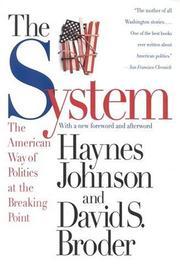
ISBN: 0316111457 9780316111454 Year: 1997 Publisher: Boston [etc.] Little, Brown
Abstract | Keywords | Export | Availability | Bookmark
 Loading...
Loading...Choose an application
- Reference Manager
- EndNote
- RefWorks (Direct export to RefWorks)
Book
ISBN: 2253130869 9782253130864 Year: 2003 Volume: 4380 Publisher: Paris Laffont
Abstract | Keywords | Export | Availability | Bookmark
 Loading...
Loading...Choose an application
- Reference Manager
- EndNote
- RefWorks (Direct export to RefWorks)
327 EUR --- World politics --- International relations --- United States --- Politics and government --- World politics - 1995-2005 --- United States - Politics and government - 1993 --- -327 EUR --- -World politics
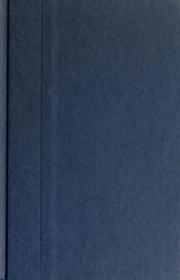
ISBN: 0812929136 9780812929133 Year: 1996 Publisher: New York Times Books
Abstract | Keywords | Export | Availability | Bookmark
 Loading...
Loading...Choose an application
- Reference Manager
- EndNote
- RefWorks (Direct export to RefWorks)
United States --- Politics and government --- Economic policy --- Social policy --- Foreign relations --- 1993-2001 --- United States - Politics and government - 1993-2001 --- United States - Economic policy - 1993-2001 --- United States - Social policy - 1993 --- -United States - Foreign relations - 1993-2001
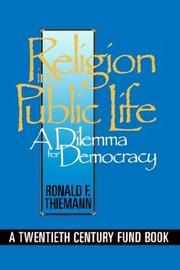
ISBN: 0878406107 0878406093 Year: 1996 Publisher: Washington, DC Georgetown University Press
Abstract | Keywords | Export | Availability | Bookmark
 Loading...
Loading...Choose an application
- Reference Manager
- EndNote
- RefWorks (Direct export to RefWorks)
Prayer in public schools, abortion, gay and lesbian rights - these bitterly divisive issues dominate American politics today, revealing deep disagreements over basic moral values. In a highly readable account that draws on legal arguments, political theory, and philosophy, Ronald F. Thiemann explores the proper role of religious convictions in American public life. He proposes that religion can and should play an active, positive part in our society even as it maintains a fundamental commitment to pluralist, democratic values. Arguing that both increased secularism and growing religious diversity since the 1960s have fragmented commonly held values, Thiemann observes that there has been an historical ambivalence in American attitudes towards religion in public life. He proposes abandoning the idea of an absolute wall between church and state and all the conceptual framework built around that concept in interpreting the First Amendment. He returns instead to James Madison's views and the Constitutional principles of liberty, equality, and toleration. Refuting both political liberalism (as too secular) and communitarianism (as failing to meet the challenge of pluralism), Thiemann offers a new definition of liberalism that gives religions a voice in the public sphere as long as they heed the Constitutional principles of liberty, equality, and toleration or mutual respect. The American republic, Thiemann notes, is a constantly evolving experiment in constructing a pluralistic society from its many particular communities. Religion can act as a positive force in its moral renewal, by helping to shape common cultural values. All those interested in finding solutions to today's divisive political discord, in finding ways to disagree civilly in a democracy, and in exploring the extent to which religious convictions should shape the development of public policies will find that this book offers an important new direction for religion and the nation.
Values --- Church and state --- Valeurs (Philosophie) --- Eglise et Etat --- Democracy --- Religion and state --- Religion and politics --- Religious aspects --- Christianity. --- United States --- Politics and government. --- Politics and government --- Religion. --- Religion --- Christianity --- 1993-2001 --- 1960 --- -United States - Politics and government - 1993 --- -United States - Religion - 1960 --- -Democracy --- -Values --- Self-government --- Political science --- Equality --- Representative government and representation --- Republics --- Religious aspects&delete& --- Government --- History, Political --- Christianity and democracy --- United States - Politics and government - 1993 --- -United States - Religion - 1960-
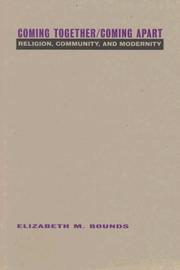
ISBN: 0415912628 041591261X 9780415912617 9780415912624 Year: 1997 Publisher: New York, N.Y. Routledge
Abstract | Keywords | Export | Availability | Bookmark
 Loading...
Loading...Choose an application
- Reference Manager
- EndNote
- RefWorks (Direct export to RefWorks)
Christian moral theology --- Christian pastoral theology --- Liberalism (Religion) --- History --- Protestant churches --- United States --- Religion --- Social conditions --- Politics and government --- Church history --- Liberalism (Religion) - United States - History - 20th century. --- Liberalism (Religion) - Protestant churches - History - 20th century. --- United States - Religion - 1960 --- -United States - Social conditions - 1980 --- -United States - Politics and government - 1993-2001. --- United States - Church history - 20th century.
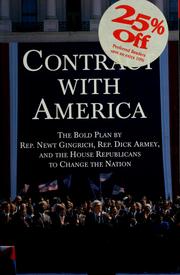
ISBN: 0812925866 9780812925869 Year: 1994 Publisher: New York Toronto Times Books
Abstract | Keywords | Export | Availability | Bookmark
 Loading...
Loading...Choose an application
- Reference Manager
- EndNote
- RefWorks (Direct export to RefWorks)
United States --- Politics and government --- Economic policy --- Social policy --- #SBIB:328H31 --- Instellingen en beleid: VSA / USA --- 1993-2001 --- 1993 --- -United States --- -#SBIB:328H31 --- -United States - Politics and government - 1993-2001 --- United States - Economic policy - 1993-2001 --- United States - Social policy - 1993
Book
ISBN: 0199280568 9780199280568 0191712817 9786612383113 0191571180 1282383116 Year: 2009 Publisher: New York, NY : Oxford University Press,
Abstract | Keywords | Export | Availability | Bookmark
 Loading...
Loading...Choose an application
- Reference Manager
- EndNote
- RefWorks (Direct export to RefWorks)
This book chronicles how a controversial set of policy assumptions about the Japanese economy, known as revisionism rose to become the basis of the trade policy approach of the Clinton administration, and details how Japan refused to accept US trade solutions and fought to discredit revisionism.
Protectionism --- Foreign trade regulation --- United States --- Japan --- Commerce --- Politics and government --- Protectionism - Japan --- Foreign trade regulation - United States --- Foreign trade regulation - Japan --- United States - Commerce - Japan --- Japan - Commerce - United States --- United States - Politics and government - 1993-2001 --- Japan - Politics and government - 1989 --- -Protectionism
Book
ISBN: 9782259213813 2259213812 Year: 2010 Publisher: Paris Plon
Abstract | Keywords | Export | Availability | Bookmark
 Loading...
Loading...Choose an application
- Reference Manager
- EndNote
- RefWorks (Direct export to RefWorks)
Voici le témoignage extraordinaire du 43e président des Etats-Unis. Rompant avec les conventions de l'autobiographie politique, George W Bush se propose, avec une franchise remarquable, de revenir sur les décisions les plus importantes de sa vie. A travers des épisodes captivants et encore jamais dévoilés, le président Bush emmène les lecteurs dans la propriété du gouverneur du Texas, la nuit des élections vivement contestées de 2000 ; il les convie à bord d'Air Force One, le jour du 11 Septembre, juste après l'attaque la plus foudroyante subie par les Etats-Unis depuis Pearl Harbor ; il les invite à la tête du Conseil de sécurité nationale, dans la Situation Room, quelques instants avant le lancement de la guerre en Irak ; et enfin, il les fait asseoir derrière le Bureau Ovale lors de toutes les décisions controversées qu'il a prises concernant la crise financière, l'ouragan Katrina, l'Afghanistan, l'Iran, et toutes les autres questions qui ont déterminé la première décennie du XXIe siècle. Le président Bush nous parle avec honnêteté et franchise de ses défauts et de ses erreurs, aussi bien que de ses succès : sa réforme de l'enseignement, sa campagne de traitement du virus du sida en Afrique. Il nous dévoile également des détails intimes inédits sur sa décision d'arrêter l'alcool, sur sa découverte de la foi et sur ses relations familiales.
Presidents --- Bush, George Walker, --- United States --- Politics and government --- Presidents - United States - Biography --- Bush, George Walker, - 1946 --- -United States - Politics and government - 2001-2009 --- United States - Politics and government - 1993-2001 --- -United States --- George W. Bush --- témoignage --- le 43e président des Etats-Unis --- autobiographie politique --- gouverneur du Texas --- Air Force One --- 11 septembre --- le Bureau Ovale --- la guerre en Irak --- l'ouragan Katrina --- l'Afghanistan --- l'Iran --- le XXIe siècle --- la foi --- histoire des Etats-Unis
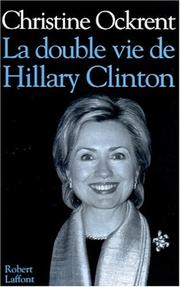
ISBN: 2221093380 9782221093382 Year: 2001 Publisher: Paris Robert Laffont
Abstract | Keywords | Export | Availability | Bookmark
 Loading...
Loading...Choose an application
- Reference Manager
- EndNote
- RefWorks (Direct export to RefWorks)
Présidents --- Sénatrices --- Presidents' spouses --- Women political candidates --- Conjoints --- Biographies --- Political activity --- Clinton, Hillary Rodham --- United States --- Elections, 2000 --- Etats-Unis --- Politics and government --- Government --- Politics --- Clinton, Hillary --- Présidents - Conjoints - États-Unis - Biographies --- Sénatrices - États-Unis - Biographies --- Presidents' spouses - United States - Biography --- Presidents' spouses - Political activity - United States --- Women political candidates - United States - Biography --- United States - Politics and government - 1993-2001 --- United States of America --- Partenaires --- Politicians --- Government leaders --- Biography --- Book
| Listing 1 - 10 of 14 | << page >> |
Sort by
|

 Search
Search Feedback
Feedback About UniCat
About UniCat  Help
Help News
News